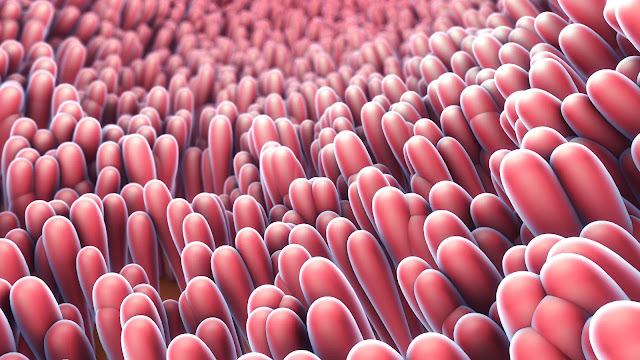Have you ever heard of celiac disease? If not, what about autoimmune diseases? Well, celiac is an autoimmune disease that occurs due to consuming gluten.
In the body with celiac disease, the immune system will react after consuming gluten. This reaction can damage the lining of the small intestine and inhibit the absorption of nutrients (nutrient malabsorption). Well, this condition can eventually cause various problems, ranging from diarrhea, weakness, to anemia.
So, what are the symptoms of celiac disease?
Children and Adults Are Different
Symptoms of celiac disease are quite varied, ranging from mild to severe. Symptoms can appear and then disappear. If it's still mild, the symptoms may often be less pronounced. However, the most common symptom that a person with celiac will experience is diarrhea.
This happens because the digestive system is not able to absorb nutrients from food properly. The body's inability to absorb these nutrients makes the stools contain high fat, so the stool will usually smell bad, oily, and foamy.
The thing to remember, the symptoms of celiac disease experienced by children are different from adults. Children tend to experience symptoms related to the digestive system, including:
- Abdominal pain.
- Constipation.
- Weight loss can cause growth disorders.
- Height is below average.
- Stomach bloating.
- Late puberty.
- Having neurological disorders, such as ADHD, headaches, learning disabilities, and having poor muscle coordination.
While the symptoms of celiac disease in adults are often not related to the digestive system, they include:
- Anemia, which is due to lack of iron or vitamin B12.
- There is a tingling sensation and numbness in the tips of the fingers and toes (peripheral neuropathy).
- Impaired lymphatic function.
- Difficult to get pregnant.
- Some parts of the body (hands, soles of feet, arms, and legs) swell due to fluid buildup in body tissues.
- Damage to the lining of the teeth.
- Impaired balance of the body.
- Reduced bone density.
- Joint pain.
From Blood Test to Skin Biopsy
If you experience any of the symptoms above, you should immediately consult a doctor to get a definite diagnosis. So, how do you diagnose this disease? Your doctor will perform several tests to make a diagnosis of celiac disease. For example, through tests:
Blood test. There are two types of blood tests that can be done, namely a serological test to look for celiac antibodies in the body, and a genetic test to look for genetic disorders in people with diabetes.
Endoscopy. The doctor may also need to perform an endoscopy to see the condition of the small intestine. This procedure is done by inserting an endoscope (a small tube with a light and camera) from the mouth or rectum to reach the targeted area.
BMD. This examination is to determine the bone density of the sufferer.
Skin biopsy. This examination is performed on people with dermatitis herpetiformis.
Symptoms and diagnosis already, what about the cause?
Many Conjectures, Genetics to Pregnancy
As explained above, celiac disease is closely related to gluten. Gluten is a protein that we can find in several types of cereals, for example wheat (bread, pasta, to instant food). However, celiac disease is not an allergy or intolerance to gluten.
In the medical world, this condition is autoimmune, where the body misrecognizes the compounds contained in gluten. The body considers these compounds as threats that can harm the body. As a result, the body will form antibodies to overcome it, thereby attacking healthy body tissues.
Then, what is the impact of the above conditions? Celiac disease can cause inflammation of the small intestine, and the absorption of food nutrients is not perfect.
Unfortunately, until now the exact cause of celiac disease is not known. Experts suspect this condition is caused by a combination of an autoimmune process and genetic disorders. There are also those who suspect that celiac disease is related to other conditions, such as surgical procedures, viral infections, to pregnancy and childbirth.
Want to know more about celiac disease? Or have other health complaints? Call your doctor.

